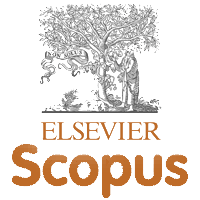OPTIMIZING CUSTOMER RELATIONSHIPS: LEVERAGING THE WEIGHTED SUM MODEL IN CRM STRATEGIES
Abstract
Customer Relationship Management (CRM) is Current and potential with customers contacts and to manage relationships businesses use a strategic approach. Customer data to analyze, their needs to understand, products accordingly or services technology to create and processes and improving systems this includes customer centralizing information by, email, phone calls, social media and face-to-face meetings various touch like connect the dots crm to monitor systems enable businesses. This comprehensive view helps in identifying patterns, preferences, and opportunities for personalized engagement. CRM facilitates effective communication, streamlines sales and marketing efforts, and ultimately enhances customer satisfaction and loyalty. Moreover, it empowers businesses to anticipate customer needs, deliver timely solutions, and foster long-term relationships, thereby driving growth and profitability. In essence, CRM serves as a vital tool for businesses aiming to create meaningful and lasting connections with their customers. Customer Relationship Management (CRM) research holds significant importance in modern business contexts. By studying CRM practices and strategies, researchers gain insights into customer behavior, preferences, and expectations. This knowledge helps businesses develop more effective CRM systems, enhancing customer satisfaction and loyalty. Additionally, CRM research contributes to understanding the impact of technology on customer relationships, leading to innovations in CRM tools and techniques. Furthermore, insights from CRM research aid in identifying trends and challenges in customer management, guiding businesses in adapting their strategies to meet evolving customer needs and market dynamics, ultimately fostering sustainable growth and competitiveness. The Weighted Sum Model (WSM) is a decision-making technique used to evaluate alternatives based on multiple criteria. In this method, each criterion is assigned a weight representing its relative importance. The alternatives are then assessed against these criteria, and scores are assigned accordingly. The weighted scores for each alternative are calculated by multiplying the criterion score by its corresponding weight and summing them up. Finally, the alternative with the highest weighted sum is selected as the preferred choice. WSM provides a structured approach for decision-making by considering both quantitative and qualitative factors, aiding in making informed and rational decisions. Alternative: Salesforce, HubSpot CRM, Zoho CRM, Microsoft Dynamics 365, Pipedrive, Insightly, Freshworks CRM, Agile CRM. Evaluation preference: Customization, Lead Management, Contact Management, Pain Management, Reporting and Analytics, Integration Capabilities, Customer Support. The result it is seen that Salesforce is got the first rank whereas is the Agile CRM is having the lowest rank.





